 W
WRobin Alexander is a British educationist and academic known particularly for championing the cause of primary education, for his leadership of the Cambridge Primary Review, and for his research and writing on education policy, culture, curriculum, pedagogy, dialogic teaching and comparative and international education. He is currently Fellow of Wolfson College at the University of Cambridge, Honorary Professor of Education at the University of York, Professor of Education Emeritus at the University of Warwick and Chair of the Cambridge Primary Review Trust. In 2011 he was elected Fellow of the British Academy (FBA), the UK’s national academy for the humanities and social sciences.
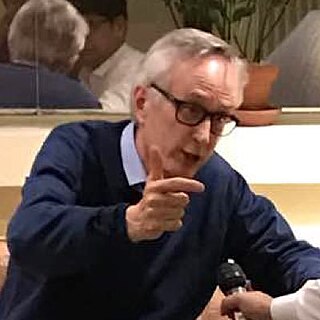 W
WSir Michael Blaydon Barber is a British educationist and founder and chairman of Delivery Associates, an advisory firm focussed on working with governments and other organisations to help them deliver improved outcomes for citizens. He is a global expert on implementation of large-scale system change, a leading authority on education systems and education reform, and was knighted in 2005 for his contributions to improving government.
 W
WDame Henrietta Octavia Weston Barnett, DBE was a notable English social reformer, educationist, and author. She and her husband, Samuel Augustus Barnett, founded the first "University Settlement" at Toynbee Hall in 1884. They also worked to establish the model Hampstead Garden Suburb in the early 20th century.
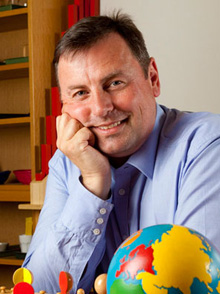 W
WPhilip Edwin Bujak is an educationalist and commentator on Anglo Polish affairs As CEO of Montessori St Nicholas Charity he was responsible for the founding of the Montessori Schools Association, the Montessori Evaluation and Accreditation Board, and a leader in the drive for the creation of state funded Montessori schools.
 W
WCecil Delisle Burns was a leading English atheist and secularist writer and lecturer.
 W
WEmma Cons was a British social reformer, strongly committed to women's suffrage. She also campaigned for educational opportunities for the working class, including cheap tickets to Shakespearean drama at the Old Vic Theatre, which she opened in 1880, later managed by her niece Lilian Baylis.
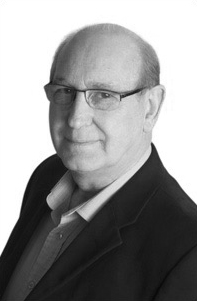 W
WBarry Dufour is a British academic and author who specializes in the area of education research. He is a visiting professor at De Montfort University, Leicester. In 1973, he co-authored with D. Lawton The New Social Studies in which they outlined their concerns that curricula be developed with age-appropriate schemes. He was the editor of the 1990 book The New Social Curriculum: A Guide to Cross-Curricular Issues which also focused on issues of curricula.
 W
WSir Christopher John Frayling is a British educationalist and writer, known for his study of popular culture.
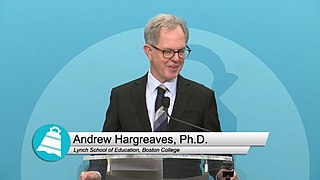 W
WAndrew Hargreaves was the Thomas More Brennan Chair in Education at the Lynch School of Education at Boston College until 2018. The mission of the Chair is to promote social justice and connect theory and practice in education.
 W
WSir Philip Joseph Hartog was a British chemist and educationalist who undertook this role in England and India.
 W
WDavid Horsburgh (1923-1984) was a British-born educationist who worked in India. He first came to India in 1943 while serving with the Royal Air Force. He felt very much at home in the region and was moved by the poverty and poor educational opportunities for rural children he encountered while living in a small village in the North East. After the war, on his return to the UK he vowed to return to India and become involved in education. He studied in England at the University of London - SOAS and returned to India to work as a teacher of English, first in Mysore and then at Rishi Valley School. He also worked with the British Council in India and the National Council of Educational Research and Training. He later founded a school, Neel Bagh in Kolar district - about 100 km outside Bangalore. He is known for his contributions to the area of educational reform, especially the introduction of Activity-based learning.
 W
WSusan Sutherland Isaacs, CBE was a Lancashire-born educational psychologist and psychoanalyst. She published studies on the intellectual and social development of children and promoted the nursery school movement. For Isaacs, the best way for children to learn was by developing their independence. She believed that the most effective way to achieve this was through play, and that the role of adults and early educators was to guide children's play.
 W
WSir Cyril Jackson KBE was a British educationist, important in the development of education in Western Australia.
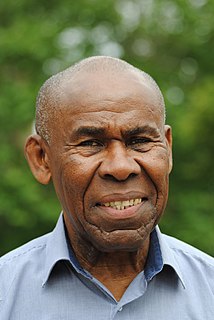 W
WAugustine John is a Grenadian-born award-winning writer, education campaigner, consultant, lecturer and researcher, who moved to the UK in 1964. He has done notable work in the fields of education policy, management and international development. As a social analyst he specialises in social audits, change management, policy formulation and review, and programme evaluation and development. Since the 1960s he has been active in issues of education and schooling in Britain's inner cities such as Manchester, Birmingham and London, and he was the first black Director of Education and Leisure Services in Britain. He has also worked in a number of university settings, including as visiting Faculty Professor of Education at the University of Strathclyde in Glasgow, as an associate professor of education and honorary fellow of the London Centre for Leadership in Learning at the UCL Institute of Education, University of London, and visiting professor at Coventry University. A respected public speaker and media commentator, he works internationally as an executive coach and a management and social investment consultant.
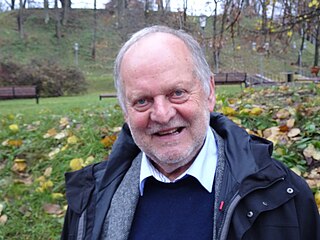 W
WGunther Rolf Kress MBE was a British semiotician who was Chair of Semiotics and Education in the Department of Culture, Communication and Media within the Institute of Education of University College London, University of London. Kress was born in Nuremberg Germany and trained as a linguist in Australia and London under MAK Halliday. He is mainly known for his contributions to the study of Multimodality; he wrote with Theo van Leeuwen Reading Images: The Grammar of Visual Design, one of the most influential books on the topic.
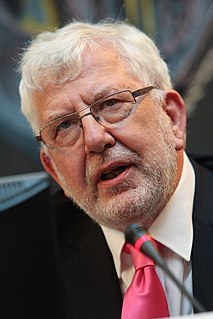 W
WKeith M Lewin is a British Professor of International education and Development at the University of Sussex and Director of the Consortium for Research on Educational Access, Transitions and Equity (CREATE). He is known for his work in educational planning, economics and finance of education, teacher education, assessment, science and technology education policy in developing countries, educational aid and program evaluation. He has been adviser to various governmental, multilateral and non-profit organisations on education planning and policy, including the World Bank, DFID, UNESCO International Institute for Educational Planning, UNICEF, UNDP, AusAID and others. His country experience includes projects in Ghana, Rwanda, Uganda, Kenya, Tanzania, Malawi, South Africa, Zimbabwe, Mauritius, Trinidad and Tobago, Barbados, India, Sri Lanka, Bangladesh, Malaysia, and China.
 W
WAngela W. Little is Professor Emerita at the Institute of Education, University of London. She is known for her work in primary education policy and practice in developing countries as well as education planning, program evaluation and assessment. In particular she has focussed in seven main areas:Education for All and the Millennium Development Goals Multigrade education Globalisation and education Qualifications, motivation and aspirations Education in Sri Lanka Education in China Education and development
 W
WRalph Matthew Palmer, 12th Baron Lucas and 8th Lord Dingwall, addressed formally as Lord Lucas of Crudwell and Dingwall, is one of the hereditary peers elected to remain in the House of Lords after the passing of the House of Lords Act 1999, sitting as a Conservative. He inherited his titles on the death of his mother in 1991, served as a Tory whip in the Lords 1994-7 for the last three years of the John Major government, and continues to serve as a backbencher. Known generally and professionally as Ralph Lucas, in 2000 he became owner and publisher of The Good Schools Guide.
 W
WSir Philip Magnus, 1st Baronet was a British educational reformer and politician, who represented the London University constituency as a Unionist Member of Parliament from 1906 to 1922. He had previously been appointed director of the City and Guilds of London Institute, from where he helped oversee the creation of a modern system of technical education in the United Kingdom. He was married to the writer and teacher Katie Magnus, and was father of the publisher Laurie Magnus. Laurie predeceased him, and on his own death in 1933 he was succeeded in the baronetcy by Laurie's eldest son Philip.
 W
WSybil Marshall was a British writer, novelist, social historian, broadcaster, folklorist and educationalist.
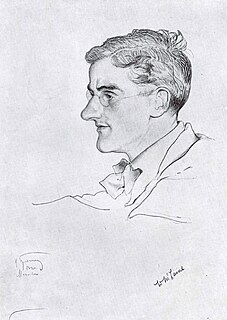 W
WWilliam McLaine (1891–1960) was an engineer, Marxist and trade union activist.
 W
WAlexander Meiklejohn was a philosopher, university administrator, educational reformer, and free-speech advocate, best known as president of Amherst College.
 W
WHilda Diana Oakeley was a British philosopher, educationalist and author.
 W
WDr Cecil Reddie was a reforming English educationalist. He founded and was headmaster of the progressive Abbotsholme School.
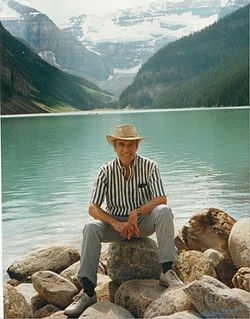 W
WWilliam Arbuckle "Bill" Reid was a British curriculum theorist.
 W
WJohn Henry Reynolds was a British educationist and administrator, particularly associated with the development of the Manchester educational institution that was to go on to become UMIST.
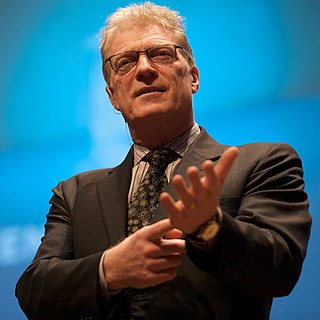 W
WSir Kenneth Robinson was a British author, speaker and international advisor on education in the arts to government, non-profits, education and arts bodies. He was director of the Arts in Schools Project (1985–89) and Professor of Arts Education at the University of Warwick (1989–2001), and Professor Emeritus after leaving the university. In 2003 he was knighted for services to the arts.
 W
WDame Angela Claire Rosemary Rumbold was a British Conservative Party Member of Parliament (MP) from a 1982 by-election until the 1997 general election.
 W
WChris Searle is a British educator, poet, anti-racist activist and socialist. He has written widely on cricket, language, jazz, race and social justice, and has taught in Canada, England, Tobago, Mozambique and Grenada. He has been associated with the Institute of Race Relations since the 1970s, and is on the editorial board of Race & Class. He writes a weekly column on jazz for the left-wing newspaper Morning Star.
 W
WSir Maurice Shock was a British university administrator and educationalist.
 W
WJames Nicholas Tooley is a professor of educational entrepreneurship and of education policy at the University of Buckingham. In July 2020 Tooley was appointed as the new Vice-Chancellor of the University of Buckingham, succeeding Sir Anthony Seldon from 1 October 2020.
 W
WKeith James Topping is a researcher in education. He designs intervention programs for teachers, parents and others to help children, then researches whether and how they work.
 W
WCecil Earle Tyndale-Biscoe was a British missionary and educationist, who worked in Kashmir where he established the Tyndale Biscoe School. He was born with the family name Biscoe. It was changed to Tyndale-Biscoe in 1883.
 W
WPhyllis Wallbank MBE was a British educationalist who, in 1948, founded the first all-age Montessori school in Great Britain and the Gatehouse Learning Centre, which took its name from the gatehouse of the Priory Church of St Bartholomew the Great in London.
 W
WToby Daniel Moorsom Young is a British social commentator and the London associate editor at Quillette, for whom he has written since 2017.